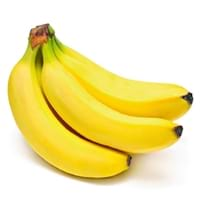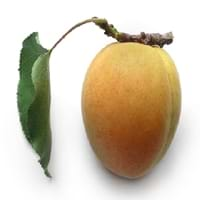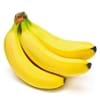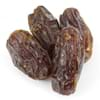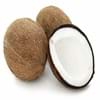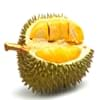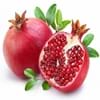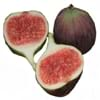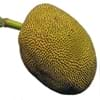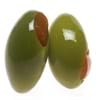Health Benefits
Cancer prevention, Diarrhea treatment, Muscle pain relief, Piles treatment, Prevents constipation, Skin cleansing, Ulcer treatment
Asthma treatment, Cancer prevention, Controls blood pressure, Digestive aid, Heart care, Maintains hormonal balance, Regulation of heart rate, Skin cleansing, Skin rejuvenation
General Benefits
Controls blood pressure, Digestive aid, Maintains healthy cholesterol level, Strengthens bones
Boosts immune system, Controls blood pressure, Digestive aid, Eye care, Maintains healthy cholesterol level, Strengthens bones
Skin Benefits
Anti-aging benefits, Hydrates skin, Skin rejuvenation
Hydrates skin, Reduces wrinkles, Treatment of dark spots, Treatment of skin diseases
Hair Benefits
Prevents hair loss, Shiny hair, Softening mask
Good conditioner, Regulates hair growth, Rejuvenates scalp, Softening mask, Treatment of dandruff
Allergy Symptoms
Abdominal pains, Decrease in blood pressure, Dizziness, Hives, Itching of mouth, Lightheadedness, Swelling, Swelling of mouth, tongue or lips, Weak or racing pulse, Wheezing
Abdominal cramps, Anaphylaxis, Breathing difficulty, Diarrhea, Itching of mouth, Itching sensation in throat, Swelling of mouth, tongue or lips, Vomiting, Wheezing
Side Effects
Headache, Intense headache, Tooth decay
Dizziness, Headache, Nausea, Vomiting
Best Time to Eat
As a snack in the late afternoon, Don't consume at night and before bed, Eat the fresh ones, avoid mixing with any other foods, don't eat after meal.
Best if taken as a breakfast (or empty stomach), As a snack in the late afternoon, Don't consume at night and before bed, Eat the fresh ones, avoid mixing with any other foods, don't eat after meal.
Vitamin B5 (Pantothenic Acid)
Vitamin C (Ascorbic Acid)
Vitamin K (Phyllochinone)
Calories in Fresh Fruit with Peel
Calories in Fresh Fruit without Peel
Not Available
Calories in Frozen Form
Not Available
Type
Berry, Tropical
Tree fruit
Season
All seasons
Summer
Varieties
Cavendish Bananas, Lady Finger Bananas, Pisang Raja, Williams Bananas and Cooking Bananas
Gold Cot, Tilton, Wenatchee, Goldbar, Gold Kist, Tomcot, Harcot, Brittany Gold, Harglow, Hunza, Moorpark, Patterson and Royal Rosa
Color
Green, Yellow
Orange, Yellowish-orange
Inside Color
White
Yellow
Shape
Curving Cylinder
Oval
Taste
Sweet
Smooth, Sweet
Origin
Papua New Guinea
China
Soil Type
Well-drained
Well-drained
Climatic Conditions
Warm
Dry, Hot
Facts about
- As bananas contain potassium-40 which is radioactive isotope of potassium, bananas are radioactive.
- Bananas float in water.
- There are around 1000 varieties of bananas.
- Eating this fruit will cheer you up.
- 9 Jan is considered as the National Apricot Day.
- Apricots have been around for more than 4000 yrs.
- In latin, the meaning of apricot is 'precious'.
- 95% of apricots in the US are produced by California.
Top Producer
India
Turkey
Other Countries
Brazil, Cameroon, China, Colombia, Ecuador, Ghana, Indonesia, Philippines, Uganda
Algeria, Egypt, France, Iran, Italy, Morocco, Pakistan, Spain, Uzbekistan
Top Importer
Europe
United States of America
Top Exporter
Ecuador
France
Botanical Name
Musa acuminata and Musa balbisiana
Prunus armeniaca
Synonym
Musa × dacca , Musa × sapidisiaca , Musa × sapientum
Not Available
Subkingdom
Tracheobionta
Tracheobionta
Division
Magnoliophyta
Magnoliophyta
Class
Liliopsida
Magnoliopsida
Subclass
Liliidae
Rosidae
Order
Zingiberales
Rosales
Species
M. acuminata , M. balbisiana
P. armeniaca
Generic Group
Banana
Rose
Difference Between Banana and Apricot
We might think that Banana and Apricot are similar with respect to nutritional value and health benefits. But the nutrient content of both fruits is different. Banana and Apricot Facts such as their taste, shape, color, and size are also distinct. The difference between Banana and Apricot is explained here.
The amount of calories in 100 gm of fresh Banana and Apricot with peel is 95.29 kcal and 48.00 kcal and the amount of calories without peel is 89.00 kcal and Not Available respectively. Thus, Banana and Apricot belong to High Calorie Fruits and Low Calorie Fruits category.These fruits might or might not differ with respect to their scientific classification. The order of Banana and Apricot is Zingiberales and Rosales respectively. Banana belongs to Musaceae family and Apricot belongs to Rosaceae family. Banana belongs to Musa genus of M. acuminata , M. balbisiana species and Apricot belongs to Prunus genus of P. armeniaca species. Beings plants, both fruits belong to Plantae Kingdom.
